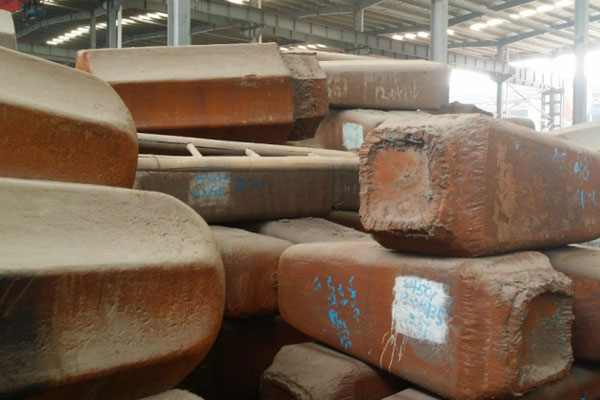Metals are thermoplastic and can be pressed when heated (different metals require different temperatures). This is called malleability.
Malleability the ability of a metal material to change shape without cracking during pressure working. It includes the ability to perform hammer forging, rolling, stretching, extrusion, etc. in hot or cold states. The malleability is mainly related to the chemical composition of the metal material.
1. What effect does titanium have on the properties and malleability of steel?
Titanium refines the grain of steel. Reduce overheating sensitivity of steel. The content of titanium in steel should not be too much, when the carbon content is more than 4 times, it can reduce the high temperature plasticity of steel, which is not good for forging.
Titanium has good corrosion resistance, adding titanium to stainless steel (added to AISI321 steel) can eliminate or reduce the intercrystalline corrosion phenomenon.
2. What effect does vanadium have on the properties and malleability of steel? Vanadium increases the strength, toughness and hardenability of steel.
Vanadium has a strong tendency to form carbides and a strong effect on grain refinement. Vanadium can significantly reduce the overheating sensitivity of steel, increase the high temperature plasticity of steel, and thus improve the malleability of steel.
Vanadium in iron solubility is limited, once more than will get coarse crystal structure, so that the case of plastic decline, deformation resistance increased.
3. What is the effect of sulfur on the properties and malleability of steel?
Sulfur is a harmful element in steel, and the main harm is the hot brittleness of steel. The solubility of sulfur in the solid solution is extremely small, and it combines with other elements to form inclusions such as FeS, MnS, NiS, etc. FeS is the most harmful, and FeS forms cokuns with Fe or FeO, which melts at 910~985C and distributes in the grain boundary in a network, greatly reducing the plasticity of steel and causing thermal embrittlement.
Manganese eliminates hot brittleness. Because manganese and sulfur have great affinity, the sulfur in steel forms MnS with high melting point instead of FeS.
4. What effect does phosphorus have on the properties and malleability of steel?
Phosphorus is also a harmful element in steel. Even if the content of phosphorus in steel is only a few thousandths, the brittleness of steel will increase due to the precipitation of brittle compound FegP, especially at low temperature, resulting in "cold brittle". So limit the amount of phosphorus.
Phosphorus reduces the weldability of steel, and it is easy to produce welding cracks when it passes the limit. Phosphorus can improve the cutting performance, so the content of phosphorus can be increased in steel before easy cutting.
Post time: Nov-23-2020

